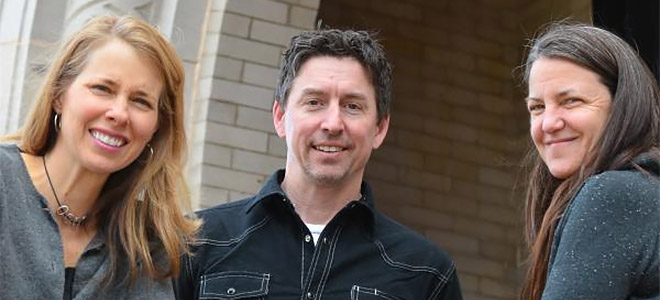
Colorado Arts and Sciences Magazine
March 2017
by Clint Talbott
Climate change is about as amusing as death, but the gallows can inspire a kind of humor. Consider this, from late-night jokester Conan O’Brien:
“Yesterday, a group of scientists warned that because of global warming, sea levels will rise so much that parts of New Jersey will be under water. The bad news? Parts of New Jersey won’t be under water.”
Rising sea level is no laughing matter. Teasing New Jersey, however, is. Such humor can help those with different perspectives find common ground, at least to the extent that they laugh together.
That’s a rationale for “Stand Up for Climate Change: An Experiment With Creative Climate Comedy,” a comedy showcase scheduled for 7 p.m., Friday, March 17, in the Old Main Chapel at the University of Colorado Boulder. The event is free and open to the public.
The event’s organizers contend that humor is underutilized in climate-change discourse and that comedy has the “power to connect people” on this topic.
Friday’s event will include stand-up comedy, sketch and situational comedy. Also, there’s a video competition featuring videos from students in this semester’s “Creative Climate Communications” course and from contenders elsewhere.
The course, taught by Associate Professors Max Boykoff of environmental studies and Beth Osnes of theatre and dance, is part of CU Boulder’s Inside the Greenhouse project. Inside the Greenhouse describes itself as a “collective of professors, students, scholars, practitioners” who creatively frame climate-change issues via video, theatre, dance and writing.
Inside the Greenhouse, founded by Osnes, Boykoff and Rebecca Safran, associate professor of ecology and evolutionary biology, is an interdisciplinary project. It reflects the fact that climate-change discourse can amount to little more than a dueling fusillade of talking points.
“People keep throwing scientific information at people, thinking that’s going to change their behavior, and we see time and time again that it doesn’t,” Osnes recently told Colorado Public Radio.
Comedy is another way to communicate, Osnes added. “Comedy has been taking on serious issues for a long time,” Osnes said. Bringing her background in the stage to bear, she cited “Lysistrata,” the comedy by the Greek playwright Aristophanes, who wryly advanced a “preposterous idea” for the Greeks to solve a big problem, the Peloponnesian War:
Lysistrata, a strong woman, convinces the women of Greece to stop having sex with their husbands until the men forge peace with Sparta.
“Through comedy, we can introduce preposterous ideas that then can become reality and can become a better version of our shared humanity,” Osnes said, adding that Lysistrata’s idea was adopted by war-weary Liberian women in 2003, and that this apparently preposterous idea helped end a war.
In the CU Boulder Creative Climate Communications class, the goal is for students to identify and expose incongruities in climate discourse, “not in a way that seeks to humiliate, but in a way that seeks to share our common challenges and our foibles.”
“We’re seeking to make these issues more relevant, more meaningful, more accessible for more audiences through humor,” Boykoff told CPR.
Students themselves say the assignment is rewarding and also fun. The winning entry in last year’s video competition was a skit called “Weathergirl Goes Rogue.” It began with a routine weather report and escalated as the TV meteorologist’s recapitulation of key climate trends was met with the anchor’s inane banter. Read more …

